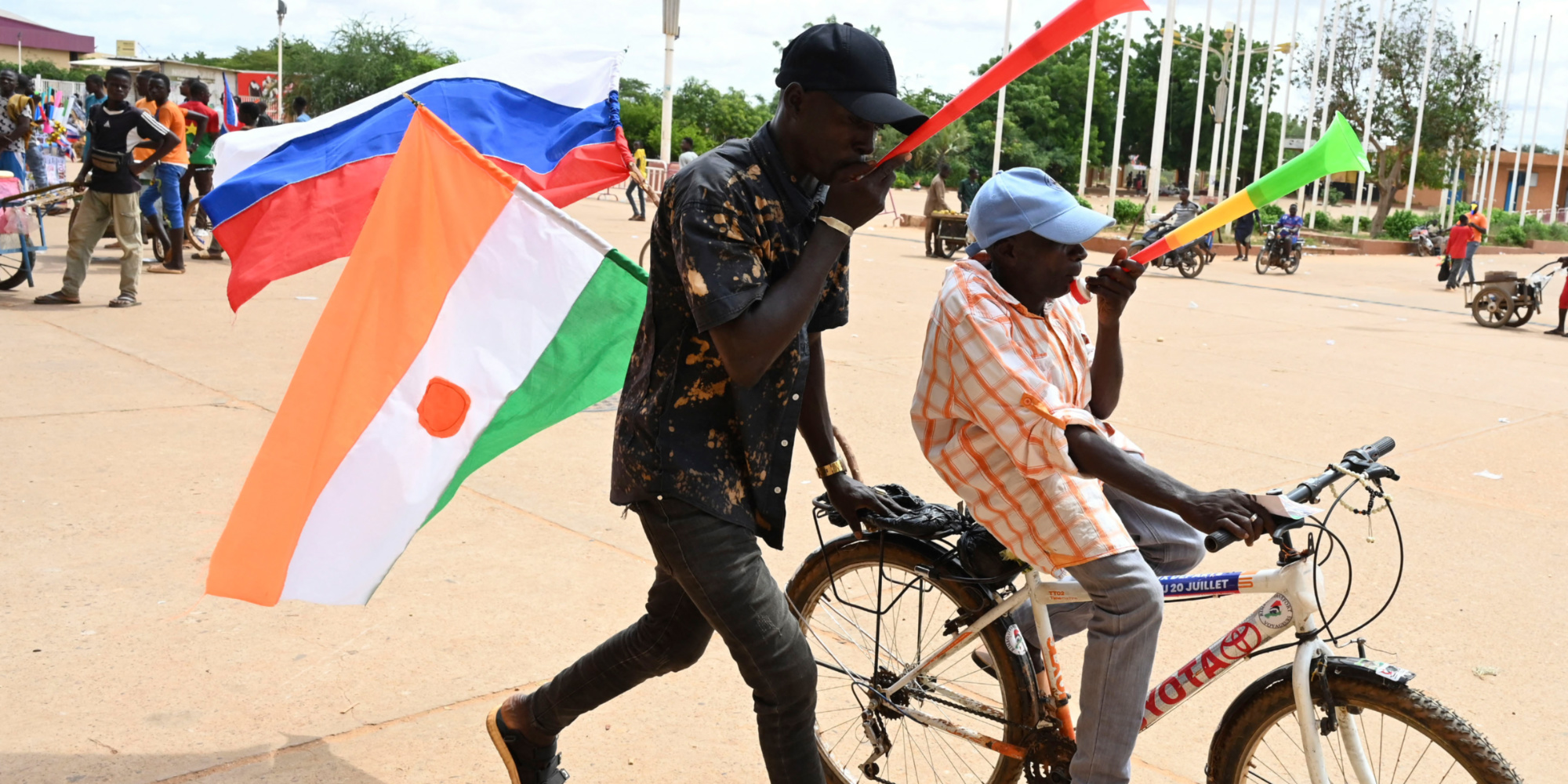According to a statement from the Nigerian Religious Mediation, the head of the military regime, General Abdourahamane Tiani, “said his door was open to explore the path of diplomacy and peace in order to resolve” the crisis. It was not immediately possible to verify General Tiani’s position as expressed by the Nigerian mediation.
On Saturday, this delegation of Muslim religious leaders led by Sheikh Bala Lau – the leader of Izala, a Salafist-inspired Islamic movement – arrived in Niamey with the agreement of the President of neighboring Nigeria, Bola Tinubu, also current President of the Economic Community of West African States (ECOWAS).
Also according to the press release, Abdourahamane Tiani, during the meeting with the delegation, “also apologized for not having given the necessary attention to the team sent by President Tinubu and led by the former head of State, General Abdulsalami Abubakar”.
On August 3, an ECOWAS delegation led by General Abubakar landed in Niamey, but left after only a few hours without being able to meet the country’s new strongman. General Tiani said it was “painful” for the coup plotters that ECOWAS leaders “did not hear their version of the facts before issuing them an ultimatum”.
On July 30, four days after the coup, ECOWAS leaders decided to financially sanction Niger and gave the military a seven-day ultimatum to restore constitutional order, threatening a possible use of force. as a last resort, without having applied it.
A diplomatic way
Last Thursday, during a new summit, the leaders reaffirmed that they favored the diplomatic route to restore President Mohamed Bazoum to his duties, while ordering the mobilization and deployment of the ECOWAS “standby force”.
The timetable and terms of a possible West African military intervention have not been disclosed. But Ivorian President Alassane Ouattara, whose country will contribute to this force, said Thursday that it should be able to intervene “as soon as possible”.
According to one of Mr. Bazoum’s relatives, the military regime had brandished “the threat” to attack him if an armed intervention took place.
According to General Tiani, quoted in the media release, the military overthrew President Bazoum “because of an imminent threat which would have affected not only the Republic of Niger, but also Nigeria”.
Abdourahamane Tiani had justified the coup by “the security deterioration” in the country, undermined by the violence of jihadist groups.
The French Minister for the Armed Forces, Sébastien Lecornu, estimated on Sunday that the coups d’état in Mali and Burkina Faso, neighbors of Niger, have weakened the fight “against terrorism” in the Sahel and favored the rebirth of a “home terrorist” bordering the Mediterranean.
Support for the military regime
Mali and Burkina Faso, led by soldiers, showed their solidarity with Niamey. Niger’s new Defense Minister, General Salifou Mody, made a short visit to Mali on Friday.
A delegation from the Nigerian regime met on Saturday in Conakry with Guinean President and Colonel Mamadi Doumbouya – who also came to power by a coup – to ask for “reinforced support to face the challenges ahead”. In Niamey, demonstrations of support for the military are regular.
On Sunday, thousands of people gathered at concerts in support of the perpetrators of the coup d’etat – gathered within the National Council for the Safeguarding of the Fatherland (CNSP) – at the Seyni Kountché stadium in Niamey.
The crowd, mostly young, waved flags of Russia, Niger, Mali and Burkina, chanting “Tiani born moukésso (it’s Tiani we love)”, in the Hausa language.
Nigerien President Mohamed Bazoum, sequestered in his residence in Niamey since he was overthrown on July 26, received a visit from his doctor on Saturday, after messages of concern from his Western and African allies.
